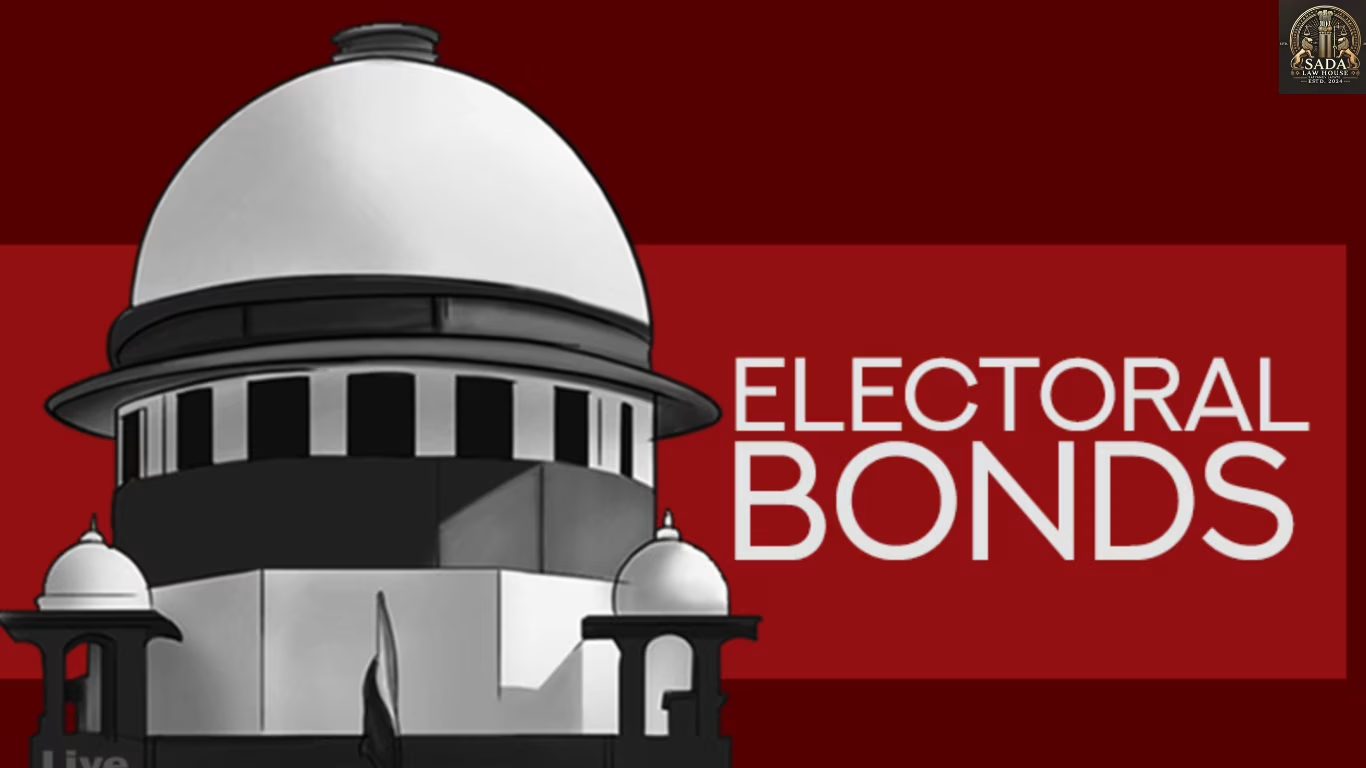Supreme Court Directs Centre on Electoral Bonds Transparency (19 September 2025)
- Shristi Singh
- 20 September 2025

Introduction
On 19 September 2025, the Supreme Court of India delivered a major interim order on the issue of electoral bonds, a controversial system of political funding. The Court directed the Union Government and the State Bank of India (SBI) to submit complete details of all electoral bond transactions—including the names of donors, recipient political parties, and amounts contributed—within 4 weeks. This ruling came in response to petitions filed by civil society organizations questioning the constitutionality of electoral bonds on the grounds of transparency and voters’ right to information.
The case represents one of the most important interventions in India’s electoral reforms, raising fundamental questions about money in politics, corruption, and citizens’ democratic rights.
Background of the Case
The Electoral Bond Scheme (2018) was introduced by the Union Government with the aim of making political donations more transparent.
However, under this scheme, donors could purchase bonds anonymously through SBI and give them to political parties, which could then encash them without revealing the donor’s identity to the public.
Critics argued that the scheme instead legalized opacity by concealing the source of massive political funding.
Several petitions were filed in the Supreme Court by NGOs like Association for Democratic Reforms (ADR), Common Cause, and constitutional scholars, arguing that the scheme violated Articles 19(1)(a), 14, and 21 of the Constitution.
On 19 September 2025, after years of pending litigation, the Supreme Court issued a strong interim direction demanding immediate transparency.
Legal Issues Raised
Does the Electoral Bond Scheme violate the right to information of voters under Article 19(1)(a)?
Does anonymity of donors create an unequal political field, favoring the ruling party in power?
Can the State legally sacrifice transparency in the name of donor privacy?
Whether such a scheme encourages corporate influence and money laundering in elections.
Arguments of the Petitioners (NGOs and Civil Activists)
Electoral bonds deny citizens their fundamental right to know who funds political parties.
The scheme promotes quid pro quo between corporations and ruling governments.
Cited precedents like Union of India v. Association for Democratic Reforms (2002) and PUCL v. Union of India (2003), where the Supreme Court upheld voters’ right to information as a fundamental right.
Argued that the scheme destroys electoral integrity, enabling black money to enter politics under the garb of “legal donations.”
Arguments of the Respondents (Union Government & SBI)
The Government defended the scheme, saying it reduced cash donations and brought funds into the formal banking channel.
Claimed that donor anonymity protects corporations and individuals from political retribution by rival parties.
SBI argued that it merely acts as a facilitator and follows confidentiality rules as mandated by law.
Emphasized that striking down the scheme could disrupt ongoing electoral processes.
Supreme Court’s Observations and Ruling
The Court noted that in a democracy, citizens have the right to make informed choices about the political parties they vote for. Without transparency in funding, this right is violated.
Strongly criticized the Government for “prioritizing donor secrecy over voter awareness.”
Directed SBI to hand over all records of electoral bond sales, donor details, and encashments by parties to the Election Commission of India (ECI) within 4 weeks.
Ordered the ECI to publish this information on its official website within 2 weeks of receiving the data.
Indicated that the final verdict on the constitutionality of electoral bonds would be delivered in November 2025.
Significance of the Case
Reinforces the principle that voters’ right to know supersedes donor privacy.
Marks a turning point in the debate over money and politics in India.
Ensures accountability of both ruling and opposition parties, since all funding sources must be revealed.
May influence future electoral reforms, including state funding of elections.
Establishes a precedent for balancing corporate rights vs. democratic transparency.
Criticism and Challenges Ahead
Political parties across the spectrum expressed unease, as disclosures could expose their nexus with big corporate houses.
Concerns remain over whether the Election Commission has the independence and resources to enforce compliance effectively.
Some experts argue that without cap on donations and strict auditing, transparency alone may not end corruption in political finance.
Conclusion
The Supreme Court’s interim order of 19 September 2025 on electoral bonds is a watershed moment for Indian democracy. By demanding full disclosure of political donations, the Court has reaffirmed the idea that electoral transparency is a constitutional right of every citizen. While the final judgment is awaited, the decision signals a clear shift towards cleaner and more accountable politics. If effectively implemented, it could pave the way for historic reforms in India’s electoral system, reducing the unchecked influence of money in elections.






